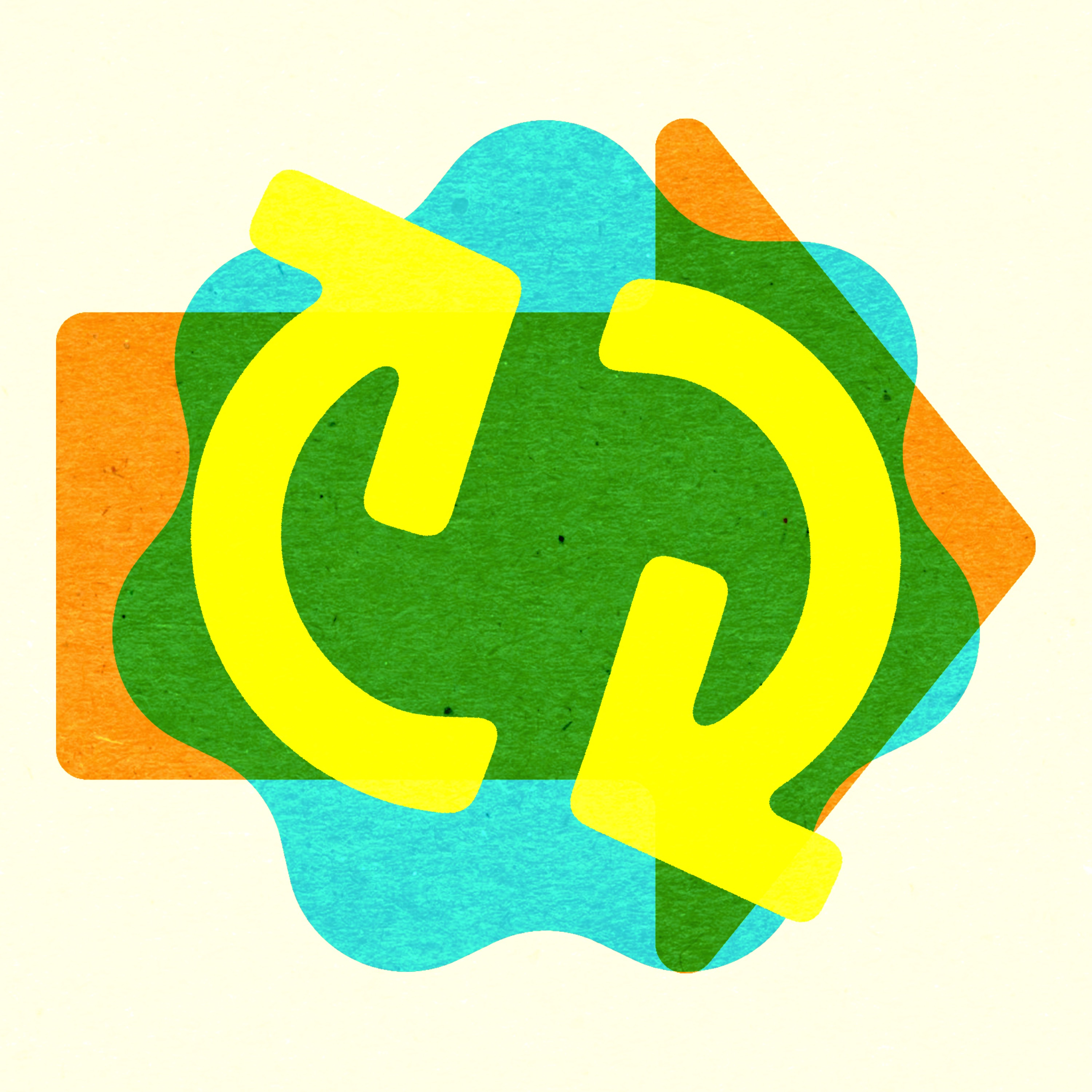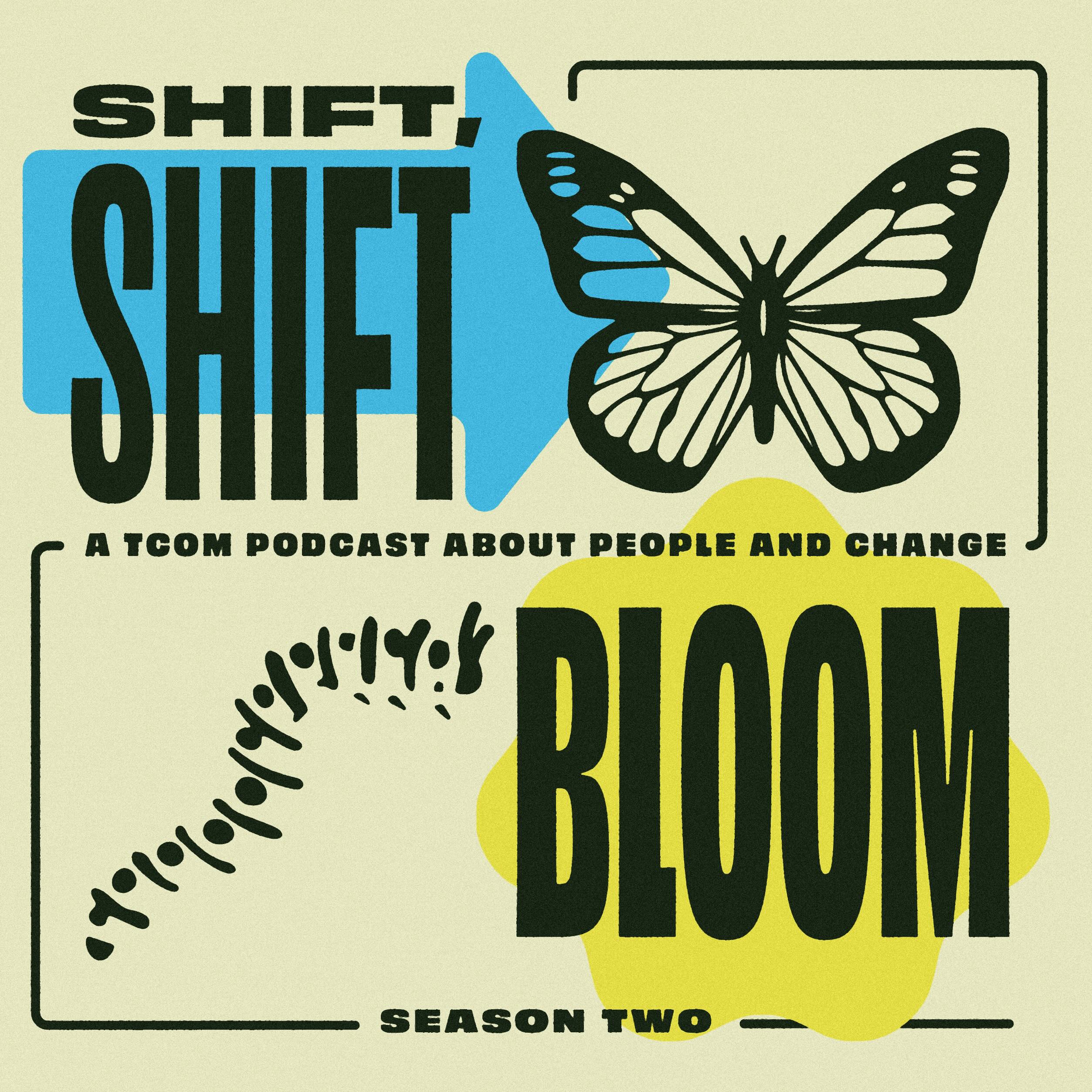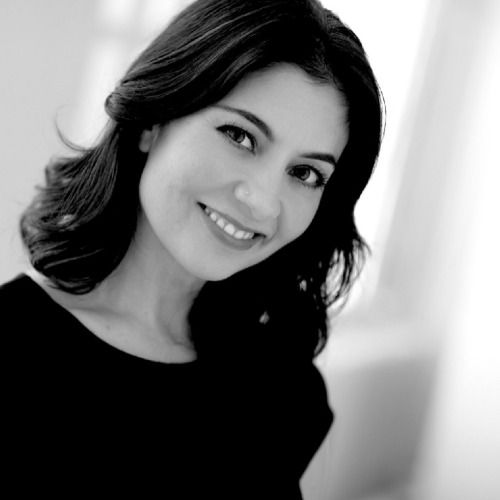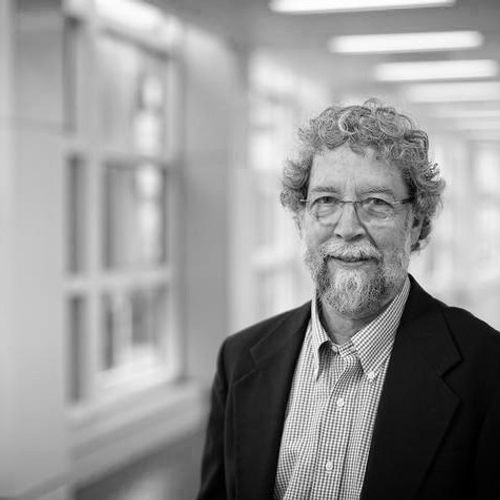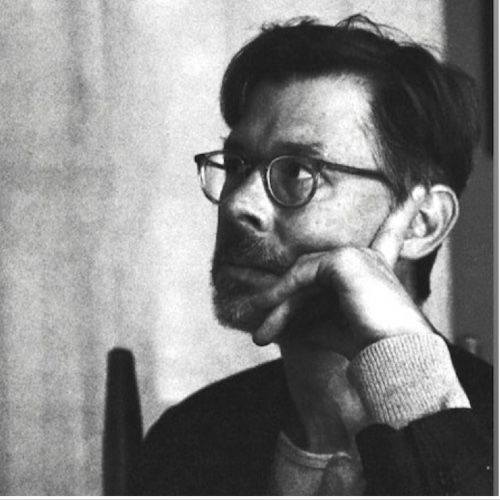bonus
TCOM Takeaway 1: Eddie the Barber and the Irritating Buddha
About this episode:
John & Kristen discuss Jordan Constantine
Some things that came up for John & Kristen:
Additional Resources:
Additional Resources
Become a Supporter:
If you like what you hear, please consider making a donation on our Patreon site!
Credits:
Credits
- Hosted by Kristen Cerelli
- Cover art by @jacksonfall
- Theme Music by Kristen Cerelli. Additional music by Ray Wyssman and The Simoleons
- Podcast production by Timothy Fall
All content Copyright ActuallyQuiteNice, Inc & TCOM Studios, 2022-2025
Transcript
Kristen Cerelli 0:00
Every week on our regular episodes of shift shift Blum, I get to interview people whose lives are very different from mine. And we talk about how each has navigated the twists and turns inherent in transformation. But I wonder what's universal about how people change? What are the common threads, the connective tissue, I tend to look at change through the lens of my own experience, for the most part, the artists life. Lucky for us, my curiosity is shared by the CO creator of shift shift bloom, Dr. John Lyons, luminary and author in the field of clinical psychology and systems change, who better to help me unpack all the questions that fill my mind when the interviews are over. I'm Kristen Cerelli, and you're listening to shift shift bloom, T calm takeaways, my conversation with Dr. John Lyons about a recent interview.
Welcome back, John,
John Lyons 1:13
thank you, aggressive.
Kristen Cerelli 1:15
Thank you for agreeing to do this special bonus feature for our listeners. Today, we're going to fly back over my interview with Jordan Constantine and get your perspective on his story. So I want to start with what surprised you about what Jordan had to share?
John Lyons 1:36
Yeah, I think that's an interesting question. Let me just start by saying what an incredible person Jordan is. I mean, so very thoughtful, and compassionate and intelligent. And I really enjoyed hearing his insightful perceptions on his life journey. I think probably the thing that surprised me most I had three basic takeaways from the, from the, your interview with him? And I think the one that's most surprising to me was Did he really change? Or did he actually recognize who he was, and then do a bunch of rearranging of his life to fit who he saw himself as being? And is that? I mean, I suspect that's change for a lot of people. I think that it as we talk to more and more people, I wonder how often that's really what happens when people change is that they actually come to understand who they want to be who they see themselves as are and then work to make their life fit that. And so he's not really changing who he is. He's actually becoming who he chooses to be. So I thought that was really interesting and listening to his story.
Kristen Cerelli 2:48
Yeah, there's, that's fascinating. I hadn't really thought of it that way. But you're the you're the psychologist, you're the you're you're the expert in this field. But I remember when I was doing some actor training, in Michael check off technique, and that's a very psychophysical psychological technique. One of the things that checkoff proposed was that by the time were five years old, and I'm sure he got this from some Sigmund Freud scientific thinking is right. By the time we're five years old, we're so formed and so much of the, the forming of us is from these external forces and masking ourselves, and that we're pretty much at that point only about 5% authentic, and we probably do spend the rest of our lives trying to peel off those layers that are not who we truly, truly are underneath. So yeah.
John Lyons 3:49
Yeah, I thought that was a major theme of, of Jordan story. Is that, okay, now that I've decided I've come to understand myself, how do I make my life congruent with that?
Kristen Cerelli 4:00
Yeah, he was so articulate, I'm glad that you have brought that out to it was. So warming is the word that comes to mind to be in His presence.
John Lyons 4:12
You can imagine how effective he is professionally. I mean, it's just a very, very skilled, because he's compassionate, and he's insightful.
Kristen Cerelli 4:19
I'll tell you what surprised me. Most in listening back to our conversation was the themes of grief and loss, and trauma and crisis, how much they kept coming up as maybe precipitating factors in the change but this I thought, hmm, maybe this is why we fear change so much as humans because we know there's going to be conscious or not, we know there's going to be loss and grief involved in any sort of transformational experience. But I was very surprised When he spoke into those moments where unexpected grief hit him during the change process.
John Lyons 5:08
Yeah, that's a very good observation. So at that, and that may very well be a barrier that we all experience, we know that change is difficult. And figuring out the whys of that is that is one of our challenges, I think in this podcast. And you may be right that it's this, knowing that it's going to hurt at some level may hurt deeply. May be a factor also was struck by the importance of other people in the chain process, and not always in a positive way. So I thought back to one of the first life experience I had that really got me thinking about change. When I was a kid. My father was always struggled with his weight, and see if he's like all of us that in our family that we just put our weight in our stock. And so he's his son was getting bigger and bigger. And as my mom was always about that. And so we went to this local barber shop, guy named Eddie owned it and within walking distance of our house, and we always went there and one time my dad went to see him, Eddie is the name of the barbers we called him Eddie the barber. So when he came back from the barbershop, and what had happened is any the barber had called him fat. And so immediately he went on a diet from from then on, and actually, so Edie the borrower, my mom was so mad, because she's like, wait a minute, I've been on you about this for years. At the barber before you actually take it seriously. So Eddie, the barber lived in infamy in our household, but at the same time, my dad lived to lose 92. So an impact, although he wasn't popular for that, and I was struck by Jordan bringing this up several times. There's other people in his life that were a little bit challenging, and probably even inappropriate, but at the same time, we're agents of change. And I'm thinking back to my other teachers that I value the most from grade school, and oftentimes, they weren't the ones I liked. Were the ones that yes, challenged me. So it's an interesting, the, the role of other is another interesting theme from his story.
Kristen Cerelli 7:21
Yes, the I love your Eddie the barber story, that reminds me of a phrase that Buddhist teachers use. They call people like that irritating Buddha's, or irritating teachers. And it's those people who really rub us the wrong way, who often are the ones who are able to get us to, if not change, at least recognize that something is off, or we want something to be different in our lives. It's not the people who are maybe compassionate to us and loving and kind all the time, who speak to us with, you know, gentleness, that can help us along that path. Sometimes we need these irritating Buddhas in our lives, because because it's like having an inch, and you have to deal with it, it won't go away. That's, that's fascinating. So you said, there were three things that stuck out for you. So what's the third, third was
John Lyons 8:19
the fact that we all have some responsibility for creating cultures that support people's change. And I was struck by that as I listened to Jordan story, just the responsibility that we all have to create inclusive and supportive and accepting cultures. And we have a long way to go before we get to that kind of culture, but how and how potentially important it is to care about each other as opposed to rage at each other, or criticize each other, or bully each other or intimidate each other or have to be right in our relationship with each other. You know, that all those kinds of things get in the way of us being a tolerant accepting culture. And I think that actually makes it hard for some people to change because another thing to worry about is other people's reactions around
Kristen Cerelli 9:13
you. Yeah, he really brought that forward for me. And he really helped me put a more not just human face and whole experience on I think what I've encountered in the classroom, but he did it in such a mature wise way, where sometimes I think, rightly so. People who are fighting not only their own internal barriers to change, but cultural barriers to change can really come across with anger with righteous anger, and he is not that way. And so I think having that conversation with him, really moved me in In a way that even though I've been intellectually moved by, like, let's say my students who have been going through transition or, or, or anything doesn't have to be a gender transition, but they're going through something that I might not have personal experience with. And so I might have my own set of biases around, he really moved things around in me where I thought, yeah, there's more we can all do. There's more we all should be doing. And also the simplicity with which he guided those suggestions. They're really simple things that he reminded us we could do to make spaces more inclusive, more welcoming, more nurturing for other people to be who they are, and also to continue changing, because he's not done. That was the other thing that kept coming up, that we're not done changing. When we get to point B, we're going to change again, whether we maybe want to or not.
John Lyons:Yeah, his next change is accepting aging. Which is not an easy, right. It's not an easy task.
Kristen Cerelli:No. And we really do have a part one, part two, part three with him with his his massive weight loss, which could probably be its own episode, as you and your dad and Eddie the barber. No. He also talked about time, and timing, and how you grapple with those forces when you're trying to change. And I wonder if you could talk about time and timing as forces that you have to deal with when you're trying to create change in systems?
John Lyons:Yeah, that's a really important thing, because I think doing something at the wrong moment, is oftentimes in depth pointless, because it doesn't get any traction. So figuring out what the right timing is when people are ready to hear. So for instance, a lot of what we do is in response to lawsuits, so we go into a state that's being sued for their poor quality of care, so to speak. And that creates a crisis for them, which gives us an opportunity to say, hey, you know, the best way to get out from under a lawsuit and just learn how to be effective. And let's work together and try and create effective systems, because your kids and families are going to be better off the people you serve, we're going to be better off and you'll be better off, and the lawsuit will go away. And we have no track record to show that's literally true. So without that lawsuit, sometimes it's really damning just going into a system and saying, Hey, let's create a new set of additional paperwork and bureaucracy so that we can make your system about the people you serve, you know, that may not get some traction, because it's just more work. And it's a pretty heavy lift. So timing is critical. I suspect that's also true in our lives, that you can hear something when you're seven, and it doesn't have the same impact that it might have when you're 17. And figuring out, how do you match timing? I mean, therapists always talk about the timing of interventions and the timing of interpretations and the timing of when you give people feedback, which, you know, it's interesting, because I think there's a complex relationship there for therapists, because therapists need to be that irritating Buddha. But they also need to pay their rent and their kids college tuition. So they want people to be happy and come back. But if you're responsible, you have to be that irritating mood, because that's probably how change happens for lots of people. And so balancing those two competing pressures, I think is really important in the lives of people who are change agents for people. Page change agents.
Kristen Cerelli:That's fascinating. What did you learn about Jordan that you hadn't known before?
John Lyons:I actually only knew Jordan professionalized. So almost everything he talked about. I didn't. Wow. So because because we, I mean, his entire experience with the F Center has been post COVID. So I've actually never even met him in person, although I've worked with him for a couple years. So. So yeah, I mean, literally nothing about him beyond the fact that you had an English accent.
Kristen Cerelli:Such a great accent. Great, excellent. Was there one thing in particular or several things that he talked about that you thought, hmm, I'd like to borrow that next time. I'm facing a change, I think
John Lyons:probably of anything, being accepting of the irritating Buddha and thank them for it. And I also the other thing, I was touched by his his, his statement about being grateful for people who assist you and to be figuring out how to understand that when people tell you their stories, that that's a gift that that's something that is a treasure to them, and you need to figure out how to treasure it yourself because they're giving you a gift. It's So, I have to admit, you know, when I'm on a plane, I didn't tell the person next to me that I'm a psychologist because they start sharing their stories. And sometimes it's a little bit too much information, and it makes me a little bit uncomfortable. And it makes the plane ride. A little challenging. But that being said, I, you know, it gives me pause to think about how Jordan framed his maybe I'm not being sufficiently compassionate in that moment, that maybe it is my duty as a person is particularly the person who is trained in a certain way to listen to those stories of itself to that person. Hmm, I'm not sure I'll do it. But I think I do that, wow. Okay, I need to rethink how I feel about this.
Kristen Cerelli:I think that's the first step what you just said, I need to rethink how I feel about it, how I approach it, how I hold it, I might not actually change my behavior, but I can shift. Maybe even just the presence that I have, when I'm sitting next to someone, I still resonate with that. Because I go into a please do not talk to me mode when I'm on an airplane. And mostly because I'm a nervous flier, as you know, I just it takes all my energy to just get through the plane ride. But yeah, what is that? Why? Why do I want to block someone's story? Especially if I hold myself as a, as an artist and a curious person in the world? Why don't why would I want to be a barrier to someone speaking their truth to me or speaking?
John Lyons:Maybe that helps them deal with their anxiety while they're on the flight? Or has the time or something? I don't know. I mean, I will rethink that as a result of listening to German. I'm flying in a couple days. So maybe I'll give it a try and see, my standard rule is I will talk to people at landing, because it limits the amount of time. But I think I should rethink that.
Kristen Cerelli:I want to come back to where you started, which is did he change?
John Lyons:Yeah, I don't know. I mean, yes, it depends on how you define change, right? I mean, so he did a lot of fixing of his world. A lot. I mean, a huge amount of altering the world in which he lives, but I'm not sure he changed. I think he changed his world, even his physical being actually. So that's a pretty significant. I don't know what the right metaphor as I'm tempted to say landscaping, but that doesn't quite capture what I'm what I'm getting at. But you're making, he made a lot of changes in the way his life worked, and who he looked like and how, you know, all those kinds of things. But I think he found himself, actually. So I'm not sure he wasn't always there. In the same way, that's just a evolution of kind of getting back to that place. So I don't know, maybe that's a that's a change, right? That when you're blocked from being who you want to be maybe to get to who you are, that's a change, right? So. So I sort of depends on how we decided to find change.
Kristen Cerelli:I think he spoke about it. And it resonated for me, the difference in his life now and his life then being his deep discomfort with who he was. And now this sense of peace and wholeness with who he is. And so I think that is a change. And maybe that's just a change of his internal sense of himself. Sure, there are all these obvious physical changes. But yeah, it's an interesting collision or juxtaposition of two things, which is that it just seems like his essence has come out more and more and more. And in that coming out, he feels more whole and peaceful. And I think happy.
John Lyons:That's my century.
Kristen Cerelli:Yeah. Well, what do you expect we'll find similar, and other stories that we're going to hear this season?
John Lyons:I don't know. I'm very curious to find out. But I'm thinking that these themes will repeat themselves, but I suspect it's not always going to be the same, that they're, that the different pathways people take to different kinds of changes are gonna be pretty dramatically different. And whether there's new themes that emerge, I'm thinking that will be but I don't know. I mean, that's, I was very struck by Jordan. Sorry.
Kristen Cerelli:Yeah. And he was very quick and consistent to remind us that he's only speaking for himself. And even if we talk to someone else who's gone through gender transition, they would have a very different story or could have a very different story. So it will be interesting to see what is repeated and what is very different across the stories that we hear.
John Lyons:I think the other thing that stuck out is how difficult it is to pinpoint exactly how you change. You know, to really pinpoint it to say this is exactly what What happened and this is what I did. And that's it's more of this kind of global thing shifting kind of process. So I think the title shift ship blue fits what actually the way he talked about his story. So it'll be interesting to see if other people have well, this happened and therefore I did bad.
Kristen Cerelli:Yeah, I suspect we won't get an answer, nor will we feel like we want one about how people change but I think we will find a lot of inspiration in these stories and be able to borrow from other people their successes and learn from their maybe missteps or struggles along the way, and I think that's got huge value.
John Lyons:That's why our journey together it'll be interesting. I look forward to the next. The next story.
Kristen Cerelli:Yes, take care. Thanks, John.
Tim Fall:shift shift Bloom is made possible in part by the prayed Foundation, a nonprofit organization committed to improving the well being of all through the use of personalized timely interventions and provider of online training in the T comm. Tools T calm is transformational collaborative outcomes management, a comprehensive framework for improving the effectiveness of helping systems through person centered care, online at prayed foundation.org and AT T comma conversations.org. And by the Center for Innovation in Population Health at the University of Kentucky online@iph.uk y.edu
